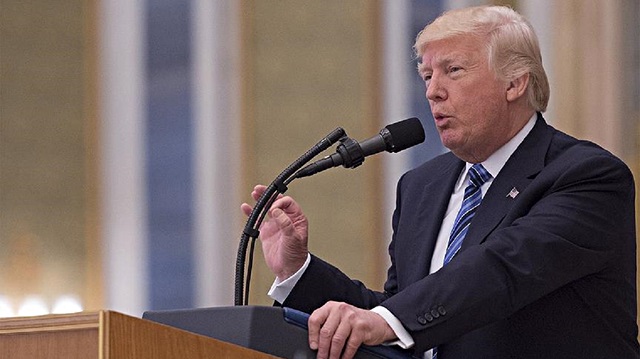
Idle speculation to suspect Saudis thought they could get away with Khashoggi’s killing, says rights group chief
The U.S. complicity in abuses conducted by Saudi Arabia has become more severe since President Donald Trump came to the White House, the director of a rights group said Tuesday.
"In the past 80 months since Trump entered the White House, the complicity of the U.S. in Saudi Arabia's abuses has become even starker,” said Human Rights Watch Program Director Tom Porteous. “The same goes for Washington in the face of mounting Saudi oppression at home and support for oppression abroad.”
Porteous spoke about the political implications of the Khashoggi affair at a panel hosted by the Arab Center, a Washington D.C.-based think tank.
The U.S. has a history of being complacent towards abuses committed by the Saudi government, he said, and the Saudis may have believed they would be immune to any repercussions in the wake of Khashoggi's killing.
Khashoggi, a Saudi national and columnist for the Washington Post was last seen entering the Saudi Consulate in Istanbul on Oct. 2. On Saturday, after weeks of denying involvement in his disappearance, Saudi Arabia announced he died in a fight inside the embassy.
World leaders have called on the Saudi government to provide more concrete answers on his death amid a global outcry, something Porteous says the Saudis were not expecting.
"It's now idle speculation to suspect that the reason the Saudis may have thought they could get away with the killing of Jamal Khashoggi in their consulate in Istanbul, is because of the signals of unconditional support coming from the Trump White House and the rest of the U.S. elite," Porteous added.
Dokhi Fassihian, another panelist and a director at Freedom House, argued the killing of Khashoggi was not "a huge surprise" and Saudi Arabia has "been categorized as among the worst of the worst countries in terms of political rights and civil liberties".
"Saudi Arabia continues to have one of the most restricted media environments in the entire world," said Fassihian.
According to Freedom House, a government nonprofit that advocates for democracy and political freedom, Saudi Arabia has consistently maintained the lowest score -- seven out of 100 -- in terms of political rights for the past 30 years.
She went further to say that unless Saudi citizens are freed, "reform is really just a mirage".
"Obviously, this is an important test. It's a test of U.S. leadership and global leadership on human rights. It's also a test of raw Saudi power. And every authoritarian government today is paying attention," Fassihian added.











